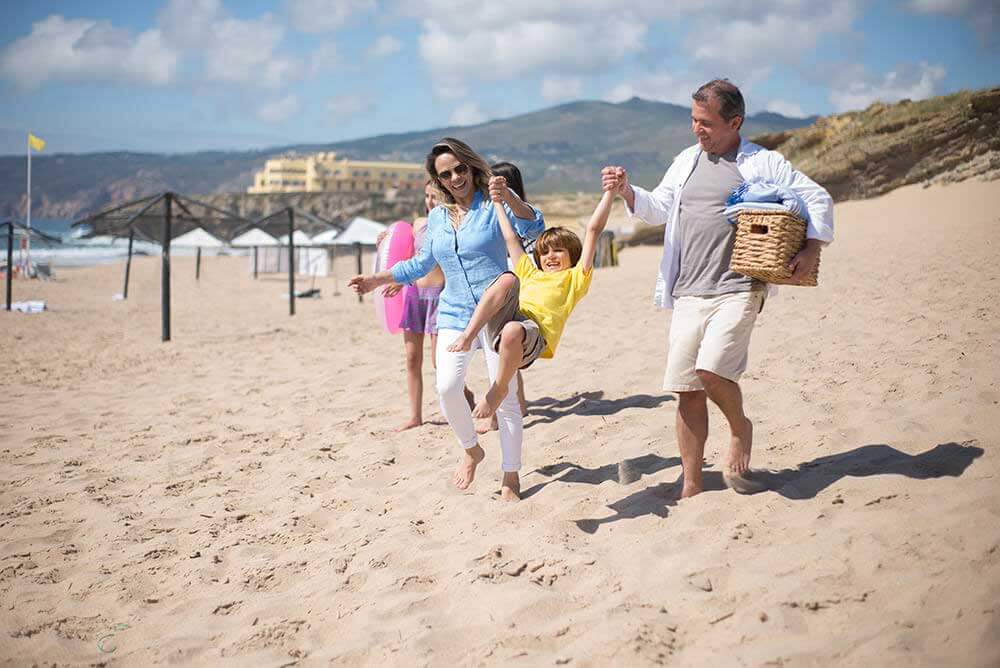
According to the Centers for Disease Control and Prevention (CDC), every year an estimated 20% of adults and 17% of children visit the hospital emergency department. And, not surprisingly, 27% of all visits occur in the summer months. Ironically, the season when we are all about getting outdoors and having fun is also when the most injuries and medical emergencies occur. Staying safe and injury-free during the summer is not really that difficult. It is more a matter of being careful and smart about the activities you and your family pursue and the precautions you take.
Prevent Sports Injuries
While the summer months encourage us to become active, outdoor activities must be done with care. For instance, taking up a new sport or pushing yourself to reach a new milestone requires preparation and training. To avoid sprains or fractures, stretch and warm-up before you start exercising or playing a sport outdoors. If you do feel any pain, stop, rest your body and if warranted, apply ice to reduce pain and swelling. In addition, many sports have protective gear such as helmets, eye goggles and knee pads which should be worn. All outdoor sports should be done with the protection of a high-quality sunscreen with a minimum 30 SPF. It should be applied frequently during the day when outdoors. It is also important to stay hydrated when doing vigorous outdoor sports especially if done during the peak sun hours or on very hot days.
Protect Against Insect Bites
When outdoors use bug spray to avoid insect bites. If hiking is among your sports, stay clear of heavily wooded areas and high grasses to avoid ticks and always check for them when returning home. Lyme disease is very serious and can be quite debilitating. If you are allergic to bees or other insects, make sure you have an epinephrine pen with you in case you are stung.
Don’t Become a Victim of a Ladder Fall or Lawn Mower Mishap
The summer months also are a time when many people take on home repairs and/or renovations. People will climb up a ladder and then proceed to fall off it because some basic precautions were not taken. Make sure you set up the ladder correctly and that the ladder you use is safe (inspect it carefully for loose rungs, wobbly base, etc.). It should also be the right height and type of ladder for the job. Wear proper shoes when using a ladder to climb and descend carefully. It is always a good idea to have another person spotting you when using a ladder.
When mowing the lawn, always wear close-toed shoes and goggles or sunglasses to avoid foot and eye injuries. Make sure young children know that the lawn mower is not a toy, and they should never be allowed to use it or be in close proximity to one when it is in operation. Keep gas cans for gas-powered mowers in a safe, cool and well-ventilated location.
Boating and Water Safety
When boating, comply with all U.S. Coast Guard safety regulations. The boat operator should be focused on the water and driving the boat safely at all times, following the navigational rules. The operator should not be consuming alcohol or any drugs while operating the boat. Inexperienced boat operators should never be allowed to operate the vessel. If dangerous weather conditions are forecasted, avoid taking the boat out on the water. Make sure the boat is equipped with safety equipment including personal flotation devices, visual distress flags/signals, horns or whistles, fire extinguishers, etc.
When swimming in the ocean, bay or a lake, always make sure you are swimming in designated lifeguard protected flagged areas. Children should be supervised by an adult at all times and never allowed to swim alone in open waters. If at a pool, children also should be watched carefully and never permitted to dive into a pool where they run the risk of injury. For inexperienced swimmers, approved flotation devices should be used.
By following smart safety practices, summer can be filled with great fun and memories that don’t include a visit to the emergency department.


